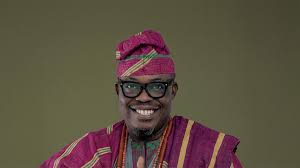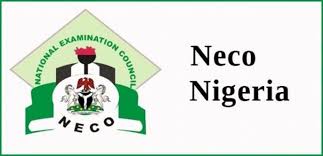Opposition may again falter as disunity among opposition leaders and individual ambitions are denying them united front against President Bola Tinubu and the All Progressives Congress (APC) in the 2027 general election. ONYEKACHI EZE writes
This discordant tunes among opposition leaders regarding the 2027 presidential election is inadvertently paving the way for the return of President Bola Tinubu to office. This is further compounded by the rumoured aspiration of former President Goodluck Jonathan.
Jonathan conceded defeat to late President Muhammadu Buhari in 2015, the first and only incumbent president to do so in the nation’s history.
Two weeks ago, the former president visited the National Chairman of the African Democratic Congress (ADC), Senator David Mark. Though details of the visit were not made known, it was believed that it was in connection with the 2027 presidential election.
ADC was adopted last July by opposition leaders, as platform to oust President Tinubu from office in 2027. It was adopted by leaders of the Peoples Democratic Party (PDP) led by the party’s two time presidential candidate, Alhaji Atiku Abubakar; Labour Party led by its 2023 presidential candidate, Mr. Peter Obi, and the Congress for Progressive Change (CPC) faction of the ruling All Progressives Congress (APC) led by former Kaduna State governor, Mallam Nasir el-Rufai and former Attorney General and Minister for Justice, Abubakar Malami. Former Rivers State governor Rotimi Amaechi is also a member of the coalition.
Before the visit however, Jonathan was said to be considering re-contesting on the platform of the PDP. As a matter of fact, former Minister of Information, Prof. Jerry Gana was emphatic that the former president will contest the 2027 presidency on the party’s platform. He told journalists in Minna, Niger State, “I can confirm that Goodluck Ebele Jonathan will contest the presidential election in 2027 as PDP candidate, and we should be prepared to vote for him to return as President again.”
To further drive home his point, Gana made comparison between Jonathan’s administration and the present leadership of the the APC that he handed over in 2015. He told the newsmen, “In 2015, former President Goodluck Jonathan said his ambition was not worth the blood of Nigerians.
“After him, another president ruled for eight years, and now another has ruled for two years.
“Nigerians have seen the difference, and the difference is very clear. Nigerians are now asking us to bring back our friend, former President Goodluck Jonathan.”
Jonathan is the latest entrance into the 2027 presidential race. Before him, former Atiku who was Nigeria’s vice president between 1999 and 2007, had indicated interest to contest the presidential election. Obi also told his supporters that he would be on the ballot, so also Rotimi Amaechi.
Though Amaechi was not a candidate in 2023, he contested the APC presidential ticket against Tinubu and came third. Atiku and Obi on the other hand, were on the ballot on PDP and Labour Party platforms against Tinubu and came second and the third respectively.
It was to avoid the mistake of the 2023 presidential election where divisions among opposition leaders gave Tinubu victory, that led to the adoption of ADC as coalition platform.
Obi who is still a member of the Labour Party, said he supports the coalition, but only if it “is not about stopping the killings in Benue, Zamfara (and) how to revive our economy, how to make our industries productive, how to put food on the tables of Nigerians…. Nigeria is currently at war. We need to do something about it.” He however said he is not in the coalition to become a running mate to anybody.
Obi had said in that television interview, “Nobody has ever discussed with me whether to be A or B or C. I am going to contest for the president of Nigeria, and I believe I’m qualified.”
Though Atiku has already resigned from the PDP, he is yet to register with the ADC. The former vice president attended the ADC caucus meeting two weeks ago.
Last week, Atiku told BBC Hausa Service that he is ready to withdraw from the presidential race only if a younger and more vibrant candidate emerges on ADC platform. And told dispel any misrepresentation of his views, his media office issued a statement two days after, to clarify what he really meant.
Paul Ibe, his media aide who signed that statement, explained:
“After a thorough review of both the video and transcripts of the interview – in the original Hausa and the English translation – it is evident that at no point did the former vice president expressly state, suggest, or even imply that he intends to step down for anyone.
“What Atiku Abubakar clearly and unambiguously said was that young people, as well as other prospective presidential aspirants, are free to enter the contest. He further stressed that if a young candidate were to emerge through a competitive primary, he would readily support such a candidate without any hesitation.
“While interpretative journalism is a legitimate aspect of reporting, stretching interpretation to the point of mischief is unacceptable and must not be encouraged.
“For the records, therefore, the insinuations attributed to the Waziri Adamawa from his BBC Hausa interview are inaccurate and do not reflect what he actually said.”
The former vice president was quoted to had said in the interview, “If a younger, vibrant and acceptable candidate emerges, I will step down. Being in the race doesn’t stop anyone. The youths should come out and I will support them.”
Amaechi also said he would contest the ADC ticket and will not to step down for any aspirant in the party’s primary election.
He told journalists, “I will contest the ADC presidential primary, and by God’s grace, I hope to win so that I can face Tinubu in 2027. I am not stepping down for anyone. Let the people decide who they want to lead.”
Analysts say opposition leaders are treading on familiar path, as it will not be the first time opposition political leaders will fail to unite against a ruling party.
In 1964, there was attempt at coalition (then known as alliance), by opposition parties. All parties in the nation’s first republic entered into alliance in order to contest the 1964 federal election against the ruling Northern People’s Congress (NPC).
As a matter of fact, two alliances were formed. One of them was the United Progressive Grand Alliance (UPGA), consisting of Action Group (AG), National Council Nigerians and the Camerouns, later known as the National Council of Nigerian Citizens (NCNC), the Northern Elements Progressive Union (NEPU) and United Middle Belt Congress (UMBC).
The other alliance was the Nigerian National Alliance (NNA), comprising of the NPC, Nigeria Democratic Party (NNDP), Mid-western Democratic Front (MWDF) and the Niger-Delta Democratic Front (NDC).
The UPGA alliance failed because the leaders failed to field a consensus candidate, and the NPC government, which was returned to office.
The same scenario played out in the second republic when the Progressive People’s Alliance (PPA) formed by three opposition parties – the Nigeria People’s Party (NPP), the Unity Party of Nigeria (UPN) and the People’s Redemption Party (PRP), failed to defeat the ruling National Party of Nigeria (NPN). The reason again, was that the three alliance parties fielded individual candidates against the NPN candidate, Alhaji Shehu Shagari.
In this republic, the only successful opposition coalition was the 2013 formation of the APC by legacy parties. APC succeeded because the three major parties – the All Nigeria People’s Party (ANPP), the CPC, and the Action Congress of Nigeria (ACN), agreed to get deregistered as political parties and returned their registration certificates to the Independent National Electoral Commission (INEC). They fielded one presidential candidate, Muhammadu Buhari against the candidate of the ruling party, the PDP, Goodluck Jonathan.
Attempt by some political parties led by the PDP to form Coalition of United Political Parties (CUPP) in 2018, against the APC, again failed, because all the coalition partners fielded candidates in the 2019 presidential election.
Former APC Vice Chairman, Mallam Salihu Lukman, who is now a chieftain of the ADC, warned that the ADC risks implosion if its leaders remain fixated on who controls its platforms ahead of the 2027 elections.
“Instead of working to build the party, we are setting ourselves to produce a party whose business will be limited to presenting candidates for elections.
“People with ambition to contest elections have become restless and want to dominate the process of developing the structures of the party to the exclusion of their opponents,” he said.
A chieftain of the ruling party, Dominic Alancha, said Obi-Atiku alliance will weaken Tinubu’s chances in the 2027, because it could erode the APC’s support base.
Alancha had argued, “In 2027, the dynamics may change. If Peter Obi and Atiku align and present a united front, they could easily pull 13 to 14 million votes. That would seriously impact our chances.”
In 2023, Obi and Atiku’s combined votes was 13,086,053, which is 54 percent of the total number of votes cast in the election, against Tinubu’s 8,794,726, which is 37 percent of the votes.
The coalition will harvest more votes in 2027, if they work together, from the support base of el-Rufai, Amaechi, David Mark, Rauf Aregbesola, among other leaders of the party. But unfortunately, this is not going to happen, and it will the advantage of Tinubu and the APC.














